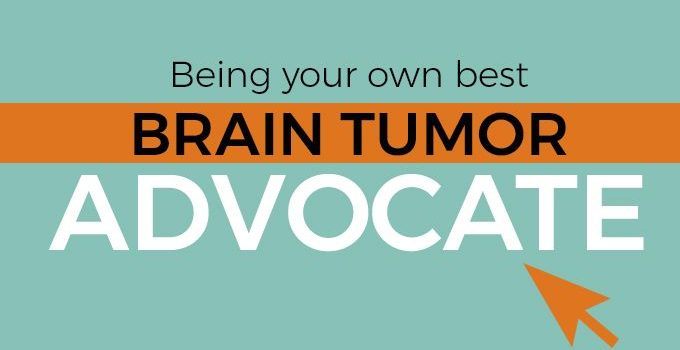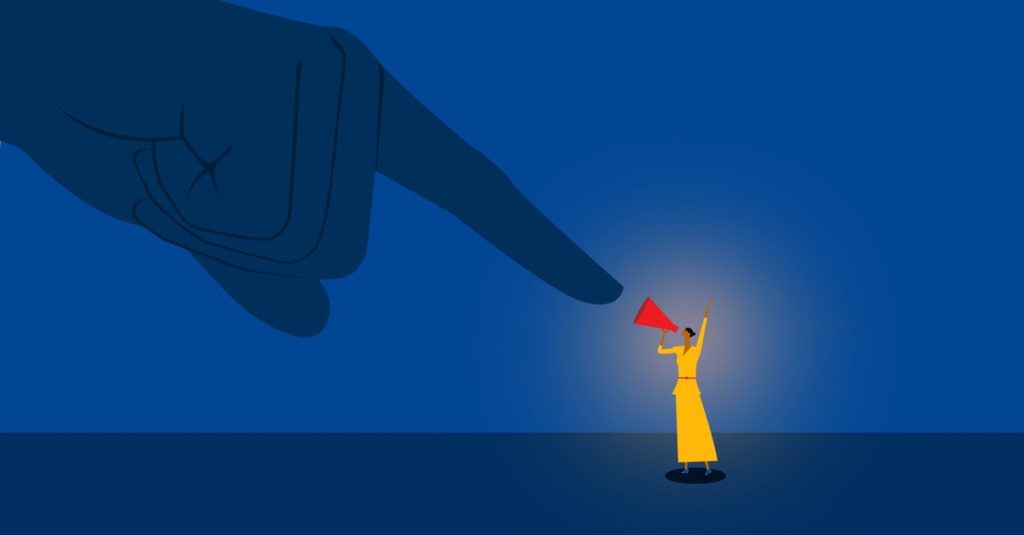

Why Brain Tumor Advocacy is Essential
by Guest Author
When I was diagnosed with a brain tumor in 1998, working in Congress with dreams to become an attorney, I was shocked and shattered entering a new world. I knew I had to get treatments, and at the same time, fear danced in my psyche about the possibility of dying. I had to find new strategies to discover the best answers for my optimal health and healing.
Since then, I’ve had three awake brain surgeries in 1998, 2011, and 2013, radiation and oral chemotherapy in 2014, as well as clinical trials, including immunotherapy. To incorporate other strategies, I used integrative cancer care for the whole person supporting the body, mind, spirit, social, and environmental health for quality of life, survival, and cancer prevention.
As other people affected by a brain tumor ask me about how I’ve survived, I emphasize the importance of advocacy.
What is advocacy in dealing with a brain tumor?
Here are 8 ways to help you understand strategies for brain tumor advocacy.
1. Self-Care
The source of being your advocate comes from self-care. While we can have appointments with providers, testing, and treatment, 24/7 self-care strategies are paramount. Benefits come from healthy foods, sleep, exercise, meditation, and many other approaches. Also, self-care helps people track how they are feeling and their needs while asking for support. This self-care for self-advocacy is vital.
2. Patients versus People
As I’ve been a brain tumor patient and survivor for many years, I know that I had frustrations from the term of being a “patient.” Over time, advocates and providers have acknowledged and embraced this language. Patients are people. We are individuals that need compassionate attention and should not be seen as just a patient. Keep that in your mindset and embrace who you are as an exceptional human being.
3. Be Proactive
In the journey, various undesired issues can happen, such as from treatments, reactions from drugs, short-term, long-term, and late effects, other health struggles, and additional issues. As people can experience highs and lows, consider this mantra. Challenges can become opportunities and adversity into actions. To be proactive and engage in actions features self-advocacy to support optimal health and healing.

4. Research & Resources
Many people conduct research related to a brain tumor and aspects in the quest for answers. Finding the best resources with quality information can be critical. Certain brain tumor non-profits have the expertise as they do not focus on cancer in general. National Brain Tumor Foundation (NBTF) is a large non-profit with educational information, research, and other topics. American Brain Tumor Association (ABTA) is another non-profit sharing support to the community as well as research. National Cancer Institute and American Society of Clinical Oncology Cancer.Net are well-acknowledged and provide information about brain tumors too. Make sure the details are current and do not make all assumptions. Seek further information to educate yourself fully on your journey.
5. Advocacy – Local, State, and National
To understand the breadth of advocacy, some people affected by a brain tumor choose to be an advocate. That includes local, state, and national. Advocacy can be related to the government, at hospitals, clinics, businesses, and other places. Some national advocacy is for cancer in general. NBTF focuses on brain tumors and approaches for cancer in general, including lobbying Congress on Capitol Hill, with more information here.
6. Clinical Trials
Brain tumor standard of care treatments cannot always cure the disease. As people seek more strategies, clinical trials are research studies with people to test new approaches, namely in Phase I, II, or III. Hospitals might have some clinical trials for you and your situation. It’s important to talk with your neuro-oncologists about clinical trials in the facility. Take in the information for your consideration and understand that options might be located at other institutions and clinics. Some resources in the research process for clinical trials is EmergingMed, Musella Foundation, and clinicaltrials.gov.
7. Cancer Financial Assistance

Another aspect can involve some overwhelm with bills related to cancer. Fortunately, some resources provide support. Cancer Financial Assistance Coalition, CancerCare Sources of Financial Assistance, American Society of Clinical Oncology Financial Assistance, and American Cancer Society give areas on cancer financial support. Also, NBTF and ABTA list non-profits, foundations, and places offering cancer and brain tumor financial assistance. Know that some help can be available.
8. Hope for Health & Healing
As there are many ways to incorporate the best possible strategies, hope can be a powerful force in self-advocacy. At the same time, the psychological process can be overwhelming dealing with a brain tumor. The head and heart are impacted, with cognitive functions affected and shown to one’s self and others. The foundation of past emotional mindsets can be woven as well. Strategies to identify, move through, and find new approaches are essential. As hope is a beacon for optimal health and healing, that mindset goes a long way to be positive in the journey.
Advocacy has helped many people affected by a brain tumor learn new strategies. Explore and embrace some of these ideas in your journey for optimal health and healing.
Questions?
For more information, schedule a consultation at Pacific Brain Tumor Center or call at 310-582-7450.
Written by:
Jeannine Walston has extensive experience for over 20 years focused on healthcare, cancer, integrative cancer care, wellness, and lifestyle of the whole person. Professional work includes government agencies, non-profits, hospitals, health systems, doctors, providers, other businesses, cancer patients, caregivers, and the public. She has a reputation as a speaker, coach, and consultant.
Reviewed by:
Santosh Kesari, MD, PhD, is Director of Neuro-oncology at Pacific Neuroscience Institute and Chair and Professor, Department of Translational Neurosciences and Neurotherapeutics, Saint John’s Cancer Institute at Providence Saint John’s Health Center. He is a world leader in the innovative treatment of all types of malignant brain tumors. Dr. Kesari and his team conduct leading-edge clinical trials in immunotherapy and biomarker-based brain tumor therapies.
Last updated: September 16th, 2020